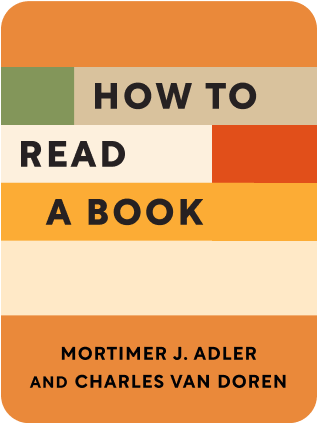

This article is an excerpt from the Shortform book guide to "How to Read a Book" by Mortimer J. Adler and Charles van Doren. Shortform has the world's best summaries and analyses of books you should be reading.
Like this article? Sign up for a free trial here .
Want to know how to critique a book the right way? Why is it important to critique the books you read?
According to Mortimer Adler, the author of How to Read a Book, your job as a reader is to determine which of her problems the author has solved, which she has not, and decide if the author knew she had failed to solve them— because there is no book that is free of fault.
This is how you properly critique a book according to Adler.
Critiquing a Book
Up until this point, you’ve been keeping your mouth shut while you read and absorbing the author’s work. After you finish understanding a book, you can argue with the author and express yourself by learning how to critique a book.
Reading a book is like a conversation. Your obligation as a reader is to talk back, even though the author isn’t there.
There is no book so good that no fault can be found with it.
We’ve been conditioned to think that teachable students are those who passively swallow knowledge without independent judgment. The opposite is true – the teachable reader is the most critical.
Your job is to determine which of her problems the author has solved, which she has not, and decide if the author knew she had failed to solve them.
Complete Your Understanding First
Until you’ve completed your understanding, you don’t have the right to say “I agree,” “I disagree,” or “I suspend judgment.”
Imagine how silly this sentiment is: “I don’t know what you’re saying, but I disagree.”
- Analogy: if a person argues with you, but she cannot state your argument in her own words, you can reject her criticism.
Much like a conversation, you need to give the author the chance to express herself fully before passing judgment. If you interrupted the author at each sentence to say she’s wrong, you’re not having a conversation that can lead to learning.
Therefore, you must finish the other tasks above (outlining the book, defining main terms, understanding the main arguments) before criticizing.
- Say that you read an author state “all men are equal.” Without understanding the author, you might take this to mean that “all people are equally endowed at birth in skill and ability,” but the author might really mean “all people should have equal political rights.”
The knowledge to understand the author may be present in other works by the author. For example, you can’t criticize Marx’s The Communist Manifesto without having understood his Capital.
How to Criticize Well
Criticizing a book means to comment, “I agree,” “I disagree,” or “I suspend judgment.”
- Agreeing is as valid a critical action as disagreeing. Furthermore, you can be wrong in agreeing.
- You can suspend judgment if you feel the author does not make a sufficiently reasoned argument.
Do not be contentious or combative for its own sake.
- Many see a discussion as something to be won, rather than an opportunity to discover the truth. They close themselves to learning something new or changing their mind.
- A disagreement is an opportunity to teach, and an opportunity to be taught.
- Do not play devil’s advocate by default. Don’t resent the author for being right or teaching you something new.
- Inversely, don’t accept the author’s word as true simply because she seems more educated than you.
- Separate your emotional reaction to the book from the rational one.
- Read the book sympathetically, earnestly trying to take the author’s point of view.
When you agree or disagree, you must give reasons for your disagreement.
- Without reasons, you can’t be sure that the disagreement is due to misunderstanding.
- Without reasons, you’re merely expressing opinions. And fighting opinions with opinions is an endless battle with no victory.
- Likewise, you should distinguish between the author’s knowledge (arguments backed by evidence) and the author’s opinions (not backed by evidence).
- Be aware of your own assumptions, and that your opponent may be entitled to different assumptions.
- “Good controversy should not be a quarrel about assumptions.” If the author asks you to take something for granted, you should honor her request.
Categories of Disagreement
If you disagree with the author, your criticism must fit into a set of categories:
- The author is uninformed: lacks knowledge that is relevant to the argument.
- Darwin lacked knowledge of later Mendelian genetics.
- An author ignores the relevant work of predecessors.
- The author is misinformed: asserts what is not the case; proposes as true/likely what it is false/unlikely.
- Aristotle was misinformed about how females participate in animal reproduction, and thus came to unsupportable conclusions about procreation.
- You must be able to argue the greater probability of a conclusion contrary to the author’s.
- The misinformation should be relevant to the argument.
- Aquinas supposed that heavenly bodies were composed of different matter from terrestrial bodies; but this was not relevant to his metaphysical account of matter. Thus you couldn’t reject his argument on grounds of misinformation.
- The author is illogical: commits some logical fallacy.
- Non sequitur: the conclusion simply does not follow from the reasons offered.
- Example from Machiavelli: “The chief foundations of all states are good laws. As there cannot be good laws where the state is not well armed, it follows that where they are well armed they have good laws.”
- The inversion of a logical statement is not equivalent to the original statement – there can be well-armed states that do not have good laws.
- Inconsistency: two things the author has tried to say are incompatible.
- Non sequitur: the conclusion simply does not follow from the reasons offered.
- The author’s analysis is incomplete: the author has not solved all the problems she started with, or seen the implications of the materials used, or failed to make distinctions relevant.
- Aristotle’s Politics is incomplete because his acceptance of slavery prohibited him from conceiving of universal suffrage.
- To a Christian believing in personal immortality, Marcus Aurelius is incomplete in his treatment of human happiness.
If you can’t support any of these remarks, then you are obligated to agree with the author.
- You cannot say, “I find nothing wrong with your premises or reasoning, but I don’t agree with your conclusions.” All you can mean by this is that you do not like the conclusions.

———End of Preview———
Like what you just read? Read the rest of the world's best book summary and analysis of Mortimer J. Adler and Charles van Doren's "How to Read a Book" at Shortform .
Here's what you'll find in our full How to Read a Book summary :
- How to be a better critic of what you read
- Why you should read a novel differently from a nonfiction book
- How to understand the crux of a book in just 15 minutes






